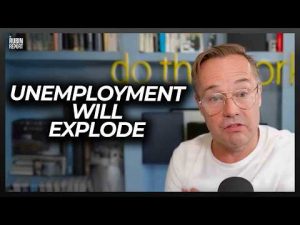In the bustling streets of Manhattan, a colorful demonstration unfolded, led by none other than the well-known Reverend Al Sharpton and his National Action Network. This gathering was no small affair, as they paraded through the city’s financial district to voice their strong opinions about a hot-button topic: the recent rollbacks of diversity, equity, and inclusion (DEI) policies by some major corporations. With a bunch of signs in hand and a determination in their hearts, these protestors aimed to send a clear message to businesses that they weren’t thrilled about reversing course on DEI initiatives.
As the crowd marched onward, the notable presence of New York City political candidates added an extra layer of intrigue to the protest. Among those expected to join the ranks were mayoral candidate Zoran Mamdani, the current mayor Eric Adams, and former Governor Andrew Cuomo. In a world where candidates sometimes seem to float in their own political bubbles, this event revealed a rare alignment on the issue of DEI rollbacks. It made one wonder: were they genuinely united on this front or merely trying to ride the wave of public opinion?
The protest appeared to be organized and peaceful, although it didn’t come without its precautions. Police were present, likely anticipating large crowds as the demonstrators made their way through the city. The choice of Wall Street as a destination was also strategic, for businesses that wander away from DEI policies could face more than just protests—they could potentially feel a pinch in their profits if their actions alienate customers who care about social responsibility. After all, no one wants to be the talk of the town for the wrong reasons!
Curiously absent from this gathering was Curtis Sliwa, the Republican candidate for mayor. His absence didn’t go unnoticed, raising questions about his decision to steer clear of the event. Some speculated that he preferred to maintain a distance from the prevailing sentiment, yet others thought he missed an opportunity to differentiate himself from the other candidates by taking a stand. Would aligning with or against DEI policies boost one’s political career? Only time would tell, but it left many scratching their heads over what strategy might have been at play.
At the heart of this complex debate lies the question of meritocracy versus social initiatives. Many attendees argued that the best candidates, regardless of diverse backgrounds, should rise to the top based solely on their abilities and skills. This argument, although poignant, raises eyebrows among supporters of DEI, who believe in the importance of fostering inclusive workplaces that reflect the community around them. The push for DEI policies asserts that promoting diversity isn’t just a moral obligation but also a pathway to increased innovation and success. It’s a big conversation happening in boardrooms across the country, and this protest was just one more chapter in that ongoing narrative.
As the march progressed, one thing became clear: whether one is on the side of the protesters or the corporate leaders making these policy changes, the conversation about diversity, equity, and inclusion, and how it affects the bottom line, is far from over. In fact, as this debate rages on, companies—and candidates—might find themselves balancing precariously on the tightrope between public opinion and business interests. And who knows? The next twist in this tale may just lead to more fireworks on the political stage!







